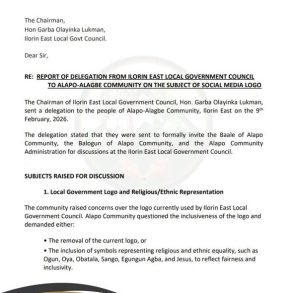February 10, 2025
By Ayinde Adeleke
The Itsekiri Historical Front has thrown its weight behind the proposed creation of Warri State, with a twist.
They want the new state to be part of the Southwest region, rather than the South-South.
This move is driven by the Front’s desire to acknowledge and strengthen their historical and cultural ties with the Yoruba people.
According to Comr. Lily-white O. Esigbone, Chairman of the Itsekiri Historical Front, the Itsekiri people have been marginalized and oppressed for too long, and the creation of Warri State is a crucial step towards autonomy and self-determination.
The Front has been advocating for this cause for over 33 years.
Historically, the Warri Kingdom was a sovereign state that existed for over 400 years, with its own ruler, the Olu of Warri.
The kingdom was a major economic powerhouse in the Niger Delta, and its legacy continues to shape the region’s identity.
The Itsekiri people’s desire to be part of the Southwest region is rooted in their cultural and linguistic ties with the Yoruba people.
The Itsekiri language is classified as Yoruboid, and the people share a common ancestry with the Yoruba.
The Front is also advocating for the inclusion of Itsekiri communities residing in Edo State, specifically in the Ikpoba-Okha Local Government Area, in the proposed Warri State.
These communities have faced marginalization and oppression from the Edo State government, and their inclusion in Warri State is seen as a logical and justifiable move.
The creation of Warri State is expected to address the systemic marginalization and ethnic discrimination faced by the Itsekiri people within Delta State.
It is also hoped that the new state will pave the way for peace and stability in the Niger Delta region.
The Itsekiri Historical Front has called upon the planning committee to consider their plea to shift the designation of Warri State from the South-South to the Southwest region.
This move is seen as vital in acknowledging the Itsekiri people’s historical roots and cultural affiliations, while fostering a brighter future for the people.






